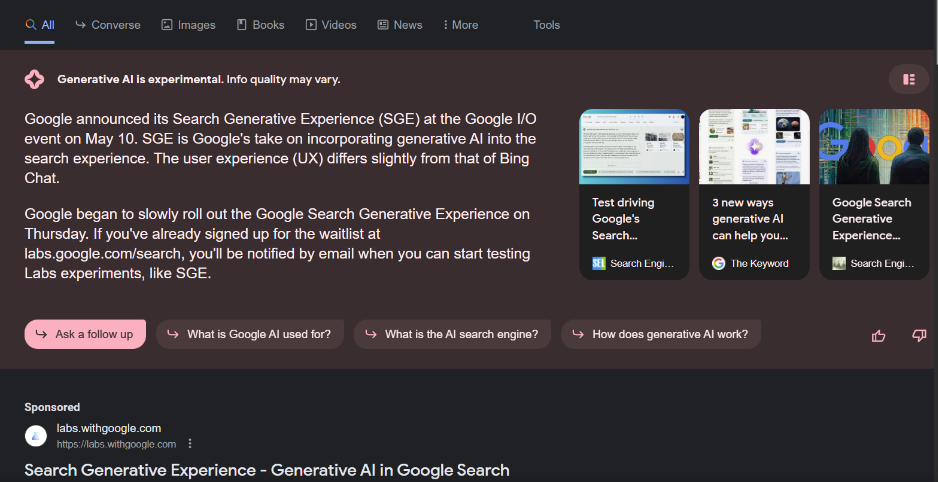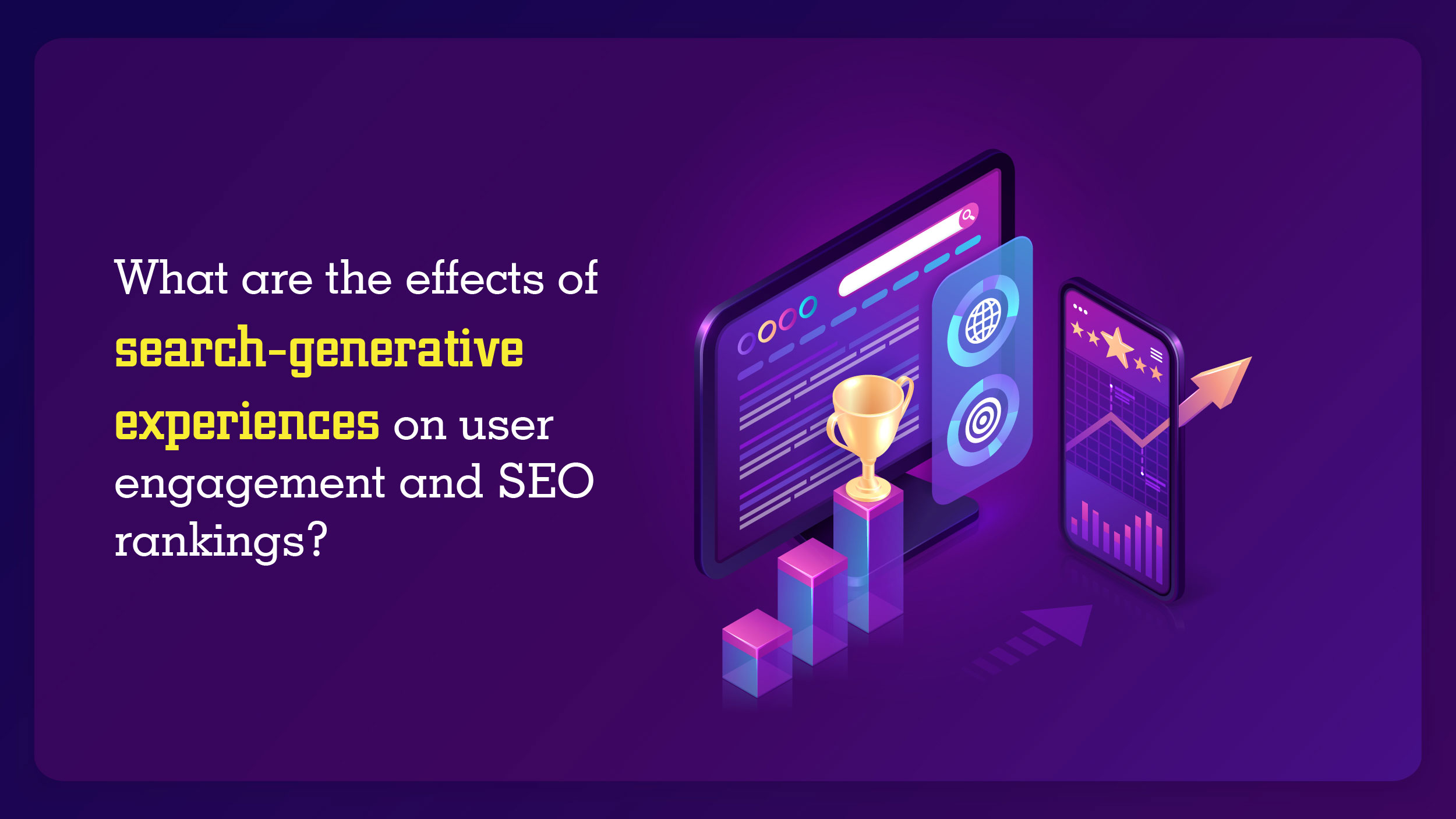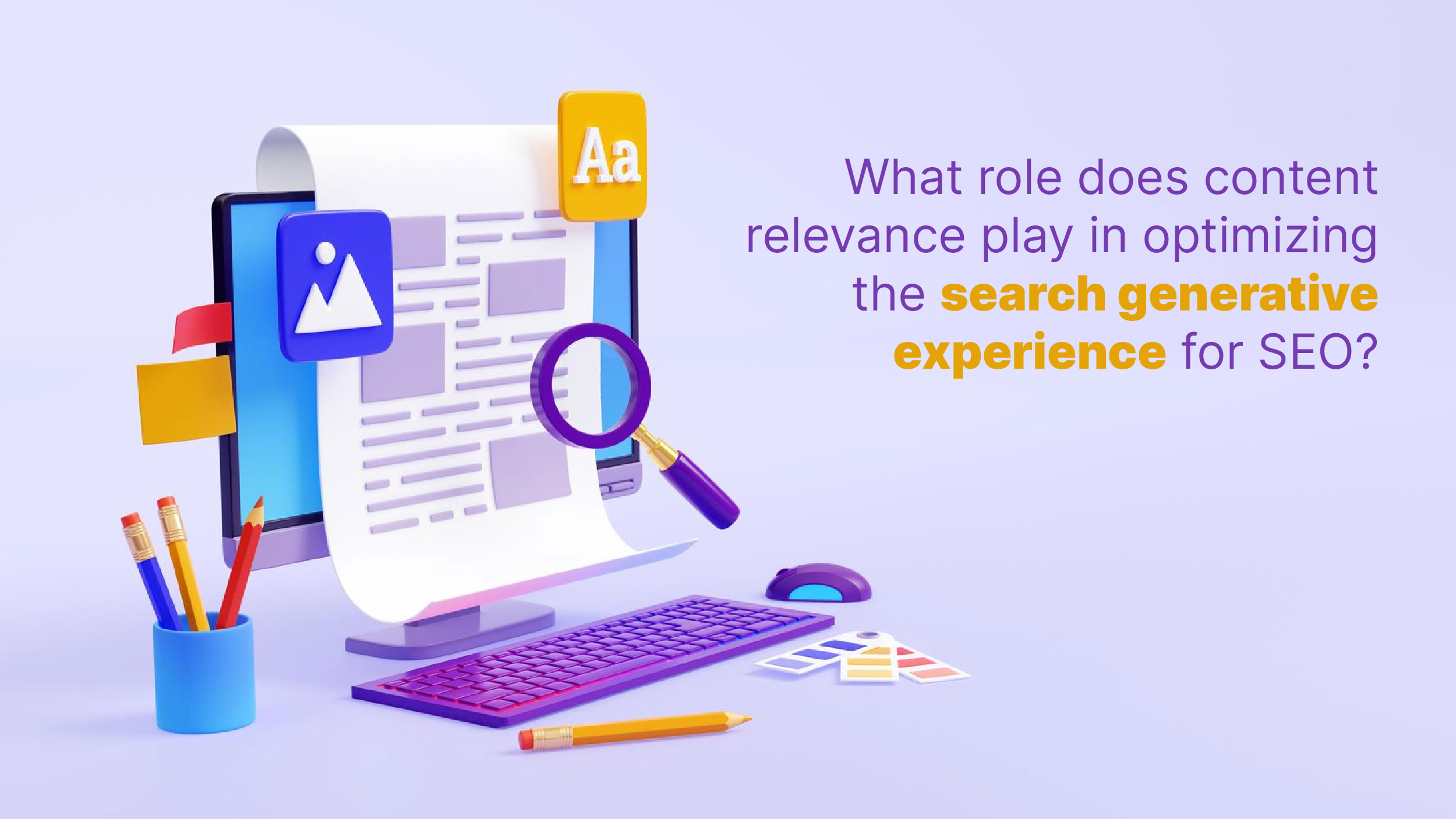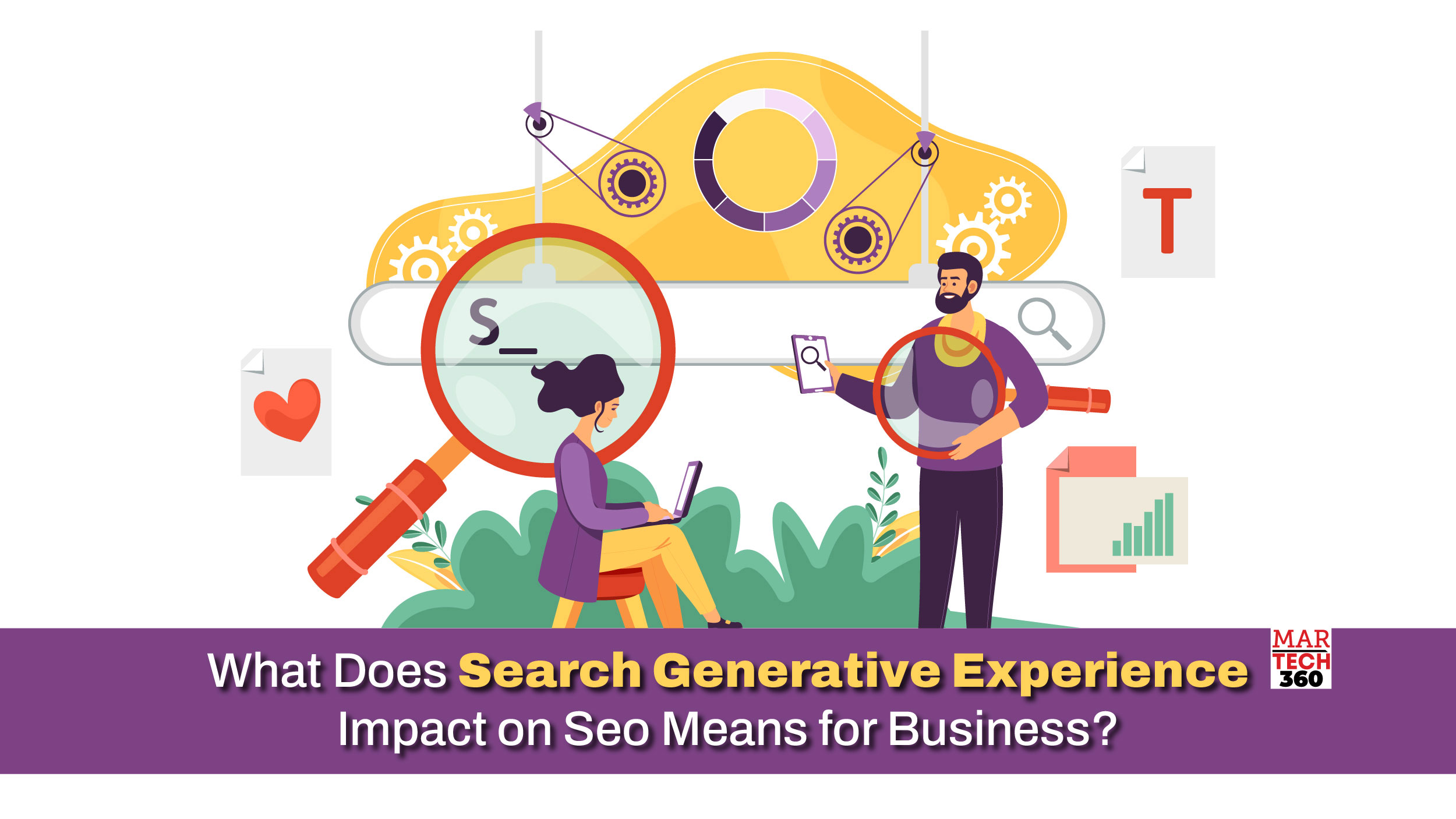Search Generative Experience is probably the most searched word right now. Google recently on May 10, 2023, at the Google I/O conference and left every marketer in a state of awe and shock. It makes us wonder, maybe creating content is now easier than ever but is it what it looks like?
Maybe search generative experience impact on SEO could take a first seat in this rapidly evolving AI-integrated world. Alas, for now, you will have to join the waiting list before you could try your marketing mind since the Search Labs is available to a limited number of people in the US only. But, don’t lose your spirit, we have covered everything about search generative experience impact on SEO and on businesses in this article.
What is Search Generative Experience?
The search generative experience released by Google is a new set of search capabilities that include answers to Google’s search engine queries that use results generated by generative AI. The addition of generative AI to search is expected to be as disruptive, as every change to Google’s search engine algorithms has an impact on SEO, user engagement, brand strategy, and user search behaviors.
The SGE search results feature an AI-generated summary section, photos to the right, and links to additional details below. The sponsored links, organic links, featured snippets, and people-also-ask dropdowns are all displayed beneath the summary.

You must register for the Search Labs waitlist in order to use SGE and other experimental features. SGE features will be accessible to desktop Google Chrome users as well as iOS and Android Google app users.
What is the Search generative experience impact on SEO?
Surely the SGE is the center of attention since Google announced its trial but how the search generative experience impact on SEO is still not known 100 percent since the final iteration is not launched yet.
Although, it is believed that search generative experience impact on SEO works by improving search by employing generative AI to bolster search queries with extra context and data. SGE can enhance the search experience for the end user by facilitating a deeper comprehension of issues, revealing unique viewpoints, and streamlining the procedure.
What are the effects of search-generative experiences on user engagement and SEO rankings?
 The search generative experience impact on SEO can be understood by decoding other indirect parameters for the time being. SGE may increase traffic to websites that offer useful and pertinent material by highlighting high-quality web results. As a result, content producers and SEO experts will need to make sure that their work is of a high caliber and is in line with the new kinds of searches that SGE users can make.
The search generative experience impact on SEO can be understood by decoding other indirect parameters for the time being. SGE may increase traffic to websites that offer useful and pertinent material by highlighting high-quality web results. As a result, content producers and SEO experts will need to make sure that their work is of a high caliber and is in line with the new kinds of searches that SGE users can make.
The new question types and conversational modes made available by SGE may drastically alter SEO tactics. SEO has always focused on optimizing for particular keywords. But, search generative experience impact on SEO is such that, it’s no longer simply about keywords, though. It involves comprehending the motivation behind an inquiry and offering the most pertinent and thorough response. This implies that content producers must consider factors other than keywords, such as the overall quality and relevancy of their work.
How do search engines consider the search generative experience when determining SERP rankings?
How the search engines consider the search generative experience impact on SEO and SERP can’t be elucidated in one step since it involves multiple factors.
The goal of SGE isn’t to provide you with a quick response and let you go. Google claims that promoting web content continues to be its major priority. “We’re committed to continuing to send beneficial traffic to sites across the web as we bring generative AI to Search,” the statement reads. For companies that depend on visitors from sponsored or organic search, we see this as encouraging news.
Google will keep the clicks coming in part by prominently putting three links to the right of each image. Additionally, a fluctuating SERP can have an effect on your ranks, traffic, and advertising expenses as well as cause changes in both sponsored and organic results.
Which ranking factors are influenced by the search generative experience?
There is no mention of any specific ranking factors that are influenced by the search generative experience. This is because the search generative experience is still under testing. The search generative experience impact on SEO cannot be achieved solely by focusing on ranking factors.
This is because concentrating only on ranking positions when reporting might result in overlooking crucial information, especially as Google continues to evolve beyond the traditional “10 blue links” format and introduces SERPs (Search Engine Results Pages) with more diverse and comprehensive elements.
Being in the top 10 will always be a sign of successful SERP exposure, but being highlighted in a generative AI snapshot may be just as useful for building consumer authority, trust, and awareness.
What role does content relevance play in optimizing the search generative experience for SEO?
 In the era of generative AI, the importance of distinctive, authoritative content will increase, and optimizing for visual appeal will be crucial. In general, the importance of content relevance in SEO cannot be overstated, and for it to perform better in search results, it must address pertinent subjects, contain relevant keywords, and offer value to the user intent.
In the era of generative AI, the importance of distinctive, authoritative content will increase, and optimizing for visual appeal will be crucial. In general, the importance of content relevance in SEO cannot be overstated, and for it to perform better in search results, it must address pertinent subjects, contain relevant keywords, and offer value to the user intent.
The search generative experience impact on SEO could be a blessing to businesses depending on the unique content they publish.
Additionally, the capability of search to produce original concepts and draughts may alter the way content is produced. Content creators can now use SGE to develop creative concepts and drafts for their content rather than just generating content based on a list of predefined keywords. Consequently, there might be a greater variety and creativity in the content produced, which might result in increased traffic and interaction.
How does the search generative experience affect click-through rates (CTR) and SEO performance?
The changing SERP structure will have an impact on the click-through rate (CTR).
This upgrade marks a substantial shift in how Google delivers search results to consumers, and it is inevitable that traffic will decline as the proportion of zero-click searches rises. Although SERP modifications are always changing, the search generative experience impact on SEO has the potential to have a significant influence on search results and behavior.
With users increasingly combining multiple requests during their interactions with search chat interfaces, as observed in their interactions with chatbots and demonstrated at events like the IO conference, it is anticipated that users’ search behaviors will evolve towards more conversational and longtail queries.
This will inevitably have an impact on how we provide keyword research and comprehend consumer desires across the industries of our clients. In our opinion, keywords will probably continue to be important. Nevertheless, they will keep changing as consumers adjust to new search strategies and queries on search platforms. Although Google has not yet announced its exact plans for updating insights sharing, we anticipate them to do so following the launch.
What is the relationship between the search generative experience, dwell time, and SEO rankings?
Dwell time measures how long a user stays on a website after clicking a link on a SERP page but before returning to the SERP results. It is uncertain how the SGE’s algorithm updates will affect SEO ranks and dwell time, and additional investigation is required to reach a more definitive conclusion.
Winding It Up
The question of search generative experience impact on SEO and businesses is still under study. However, with the introduction of generative AI into search results through Google’s Search Generative Experience (SGE), SEO, marketing, and advertising are expected to undergo significant changes. As a result of AI-generated summaries, this evolution in search could affect the number of times users click on organic and paid links. Brands must change to be competitive by adapting and optimizing their content for conversational search and generative AI algorithms.


Comments are closed.